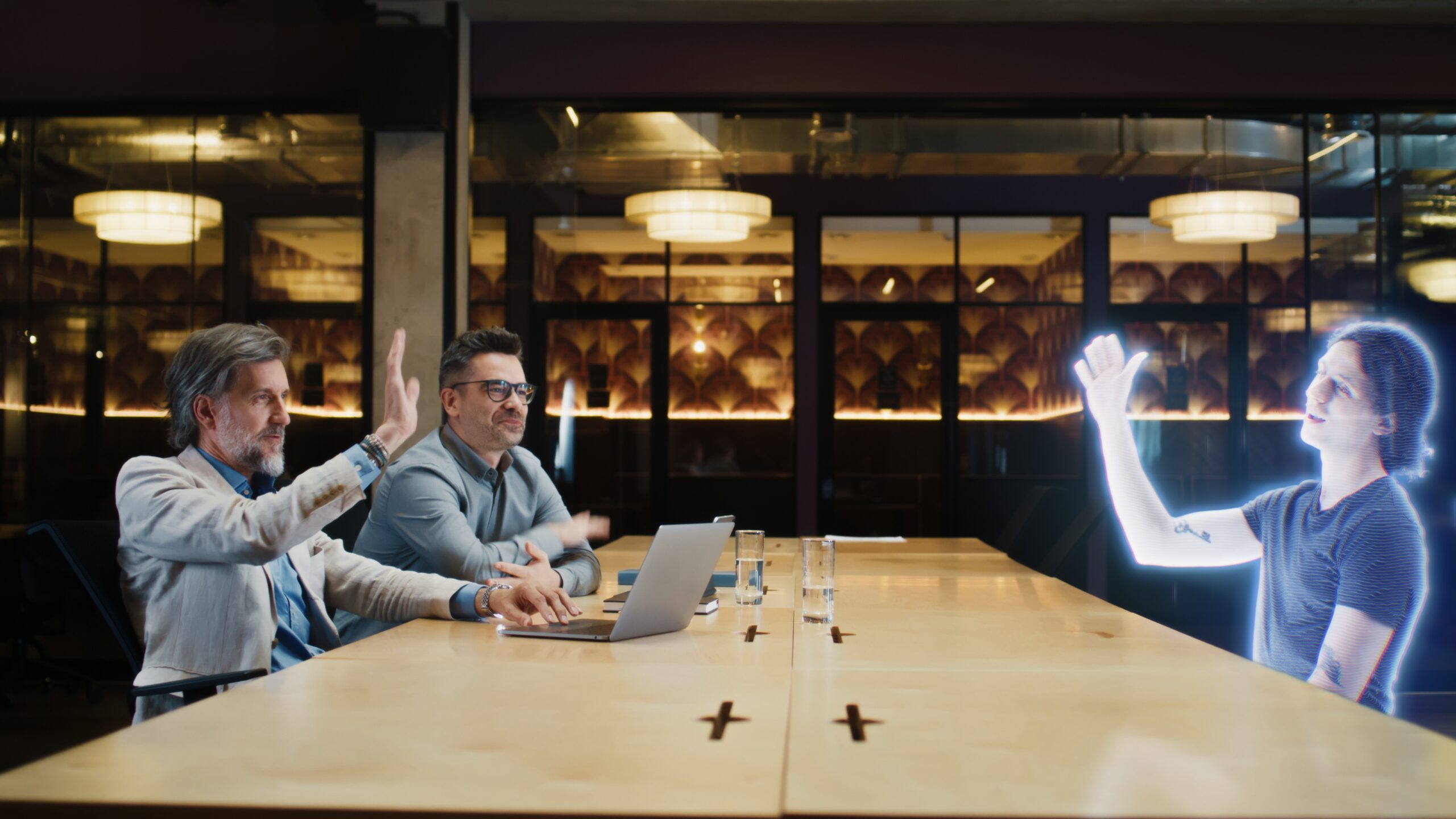Introduction:
The metaverse, a seamless virtual online world accessed via VR, AR, and MR technologies, has potential implications for the world of work, particularly in digital employer branding and company culture enhancement.
Key Points:
Rise of the Metaverse:
- The metaverse concept gained traction after Mark Zuckerberg's announcement, primarily focusing on leisure and recreation.
- However, its potential in the professional realm, especially in enhancing digital employer branding and company cultures, is becoming evident.
Meetings and Training in the Metaverse:
- Bill Gates predicts that most work meetings will soon occur in the metaverse.
- The metaverse can enhance virtual meetings, allowing employees to interact more deeply in virtual rooms equipped with tools like whiteboards.
- Training in the metaverse can be more immersive and effective. Companies like KFC and Walmart have introduced VR training games simulating real work experiences.
Marketing and Recruitment in the Metaverse:
- Interactive content in the metaverse can lead to higher brand engagement. Examples include Hyundai's collaboration with Roblox, integrating virtual branded spaces and vehicles.
- The metaverse can revolutionize sourcing and recruitment, promoting global hiring and expanding talent pools.
- Virtual offices in the metaverse can be visited by anyone, facilitating interactions between candidates and employers.
- Virtual career fairs in the metaverse, combined with visual branding, can be effective for sourcing candidates aligned with company culture.
Conclusion:
The metaverse offers opportunities to enhance remote work experiences, optimize employer branding, and expand access to meetings, training, and recruitment. For successful integration, HR managers should consider how the metaverse can be utilized throughout the employee journey to enrich company cultures.

- Meetings and training in the metaverse
- How can the metaverse be used for marketing and recruitment?
The metaverse has become more and more widely-discussed in the year since Mark Zuckerberg announced his vision of the concept. The term ‘metaverse’ is a fairly broad one, typically used to refer to the concept of a seamless virtual online world comprised of various platforms and applications, and accessed via VR (virtual reality), AR (augmented reality), and MR (mixed reality) technologies. While the majority of demonstrations of this emerging concept have been centred around leisure and recreation, there are also potential uses for the metaverse in the world of work. In addition to providing a new, virtual world for organisations and their employees to make use of, the metaverse could also affect digital employer branding and improve company cultures.
Meetings and training in the metaverse
Bill Gates has predicted that most work meetings will take place in the metaverse within the next couple of years. In addition to virtual meetings being increasingly convenient due to the rise of remote and hybrid working models, the metaverse can enhance these meetings beyond what is currently offered by existing videoconferencing tools. With VR and AR, employees can interact with each other to a far greater degree and even be in the same room – albeit a virtual, rather than a physical one. Within these rooms, virtual whiteboards, screens, and other tools can be shared and worked on together. This could reduce feelings of isolation and increase employee engagement. Training can also be carried out more effectively, as processes can be physically demonstrated and engaged with rather than simply shown on screens. For example, companies like KFC and Walmart have already released VR training games that simulate the real working experience. This can speed up and improve learning and development processes, making employees feel more confident in their abilities.
How can the metaverse be used for marketing and recruitment?
Marketing is another area in which the metaverse can be used to benefit organisations. Marketers have known for a long time that interactive content tends to result in higher engagement than non-interactive content. Participating in (or even hosting) virtual games, contests, or other initiatives can increase awareness of a brand, especially if the metaverse is used to optimise branding. Avatars and virtual rooms and objects can be customised with branding in much the same way that advertisements and billboards are used in ‘real-world’ spaces. Companies are increasingly taking advantage of the possibilities of virtual branding – for example, Hyundai’s collaboration with popular video game Roblox, where virtual spaces and vehicles were placed into the game world for users to interact with.
It is not just marketing to potential customers that the metaverse can help with, either – it can also have positive outcomes on sourcing and recruitment. The metaverse is likely to even further accelerate the trend of global hiring, widening talent pools for organisations and increasing job opportunities for workers. Virtual offices can be visited by anybody with access to the internet and the required VR technologies. Candidates can interact with employers and potential colleagues before deciding whether or not to join a company, and employers can do the same with candidates. Similar to marketing events aimed at customers, organisations can also use the metaverse to host or attend virtual career fairs. When combined with visual branding, this can be an effective way to source new hires that will match the company culture.
Closing thoughts
As well as further facilitating and enhancing the remote work experience, the metaverse can also optimise employer branding and expand access to meetings, training, and recruitment opportunities. These can all have significant effects on company cultures, diversifying workforces and empowering employees. To successfully embed the metaverse into organisations, HR managers must consider how it can be used – at every stage of the employee journey – to enhance company cultures.